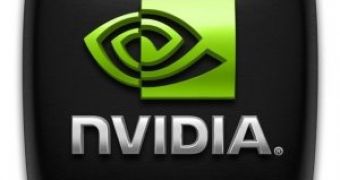According to NVIDIA, the antitrust settlement between Intel and AMD won't be nearly enough to safeguard the end-users from the Santa Clara giant's unsavory activities, which continue on other levels of the IT marketing segment. Although Intel keeps challenging NVIDIA's claims, the leading GPU manufacturer keeps notifying the public of the chip maker's tactics supposedly meant to discredit the competition. This time, NVIDIA is displeased with Intel's bundling tactics involving its Atom processors.
Neither side is known for its spotless marketing. This isn't the first time a bundling tactic is used by the Santa Clara CPU developer. Some years ago, the enterprise saw a massive success through the Centrino brand, which required notebook vendors to use a Pentium processor, an Intel chipset and an Intel wireless network controller to put the Centrino mark on their laptops. NVIDIA itself also has a history of forcing customers to use its own components exclusively, by not offering support for SLI multi-GPU operation modes on platforms that are based on non-NVIDIA chipsets. The company also occasionally only sold its high-end graphics chips only on condition that its partners acquired lower-end models as well.
This time around, the subject of discontent is the marketing tactics of Intel regarding the promotion of its Atom CPUs. NVIDIA CEO Jen-Hsun Huang commented that Intel was too aggressive in its attempts to steer manufacturers away from the competition by giving away bundles of three Atom chips for $25, whereas, when used with NVIDIA's Ion, just one chip had a price of $45.
"Intel's tactics with Ion have been the most aggressive we've seen from a competitor. They have offered the Atom [a total of three chips] for $25, but when the one-chip Atom is used with Ion, it sells for $45. A customer can't even choose to resell the chipset and use Ion instead. What's the point of Nvidia getting an Intel bus license if it's impossible to overcome Intel's pricing bundles?" Jen-Hsun Huang said, Cnet News reports.
Huang believes that Intel's deals are aggressive and anti-competitive, affecting the graphics card company's ability to promote its GeForce 9400M (Ion) core-logic on the market of netbooks and nettops. Intel, on the other hand, rebukes these claims saying that it's not something unfair to negotiate prices.
"He's playing a trick of numbers. He's giving you a $45 list price – that nobody pays – for a part and then a negotiated price (which is more realistic). He's mixing apples and oranges. We have scrubbed and continue to scrub our pricing practices as it relates to chipsets and processors. It's all above cost. And that meets the legal standard worldwide," Intel spokesman Chuck Mulloy added.
End-users may only wonder if Intel will ever get out of this phase when it is being accused of unsavory acts at every turn.

 14 DAY TRIAL //
14 DAY TRIAL //